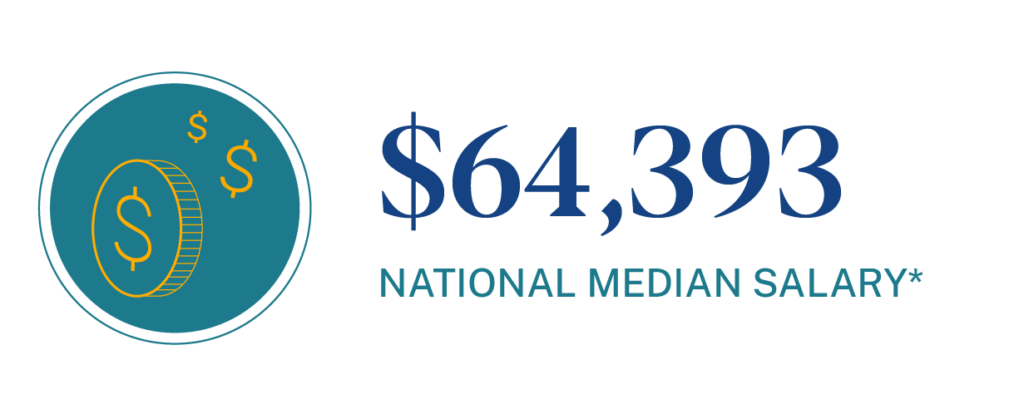Career Guide: Math Teacher
Here’s what you need to know.
Toggle Navigation
What Does a Math Teacher Do?
From learning to count to exploring trigonometry, mathematics teachers provide students with numerical, logical, analytical and problem-solving skills. On a day-to-day basis, a math teacher plans lessons, prepares teaching materials, assesses student work and much more. They also integrate differentiated instruction methods and execute best practices that lead to academic success.
Math teachers work in various settings including elementary, middle and high schools. Additionally, they might tutor or advance their careers to higher education or research roles.
If you’re more interested in teaching 1-2-3’s than A-B-C’s, then becoming a math teacher might be the career for you. This is your comprehensive guide to a career in math education.
How to Become a Math Teacher
There’s no one-size-fits-all approach to becoming a math teacher. You can start your journey to get there as early as after high school or even somewhere along the line when you’d like to change careers to become an educator. Regardless, there are programs to get you classroom-ready!
| If you don’t have a bachelor’s degree… | If you have a non-education bachelor’s degree… |
|---|---|
| Earn a bachelor’s degree in education or mathematics. Secondary (and sometimes middle school) educators may be required to have a certain number of undergraduate hours in math. These requirements vary by state. | Complete an initial-licensure program: Earn a Certificate in Transition to Teaching in either elementary or secondary education. OR Earn a Master of Arts in Teaching in either elementary or secondary education. |
| Complete a teacher preparation program and gain hands-on experience through student teaching. | |
| Obtain teacher certification and/or licensure according to your state’s requirements. | Obtain teacher certification and/or licensure according to your state and school district’s requirements. |
| Optional: Earn an M.Ed. in Mathematics Education to specialize. |
Defining Stepping Stones to Becoming a Math Teacher
As a teacher, obtaining quality education and preparation are critical to success. Different states have varying certification and licensure requirements, so be sure to check your state’s requirements. Let’s dive deeper into how you can gain the knowledge you need.
- Bachelor’s degree: Gain the foundational skills you need to lead a classroom including research-based pedagogies, student learning styles, classroom management and more.
- M.Ed. in Mathematics Education: Some educators continue their education beyond a bachelor’s degree and specialize in a content area to solidify their expertise. Those who enroll in these programs are licensed educators who have a bachelor’s degree.
- Teacher preparation program: Continue honing key skills teachers need. The focus is to prepare you for earning your teacher license or following an initial licensure path.
- Initial licensure program: These programs are for those with a non-education bachelor’s degree who want to become educators.
- Teacher licensure: You must pass state-required exams to obtain a license.
Skills Every Math Teacher Needs
Successful math teachers need a certain skill set to complement their education. Math can be a challenging subject that students find difficult to grasp. You must be prepared to support various levels of understanding.
- Strong mathematical knowledge: The level of math you aspire to teach is a great indicator of where you should focus your skills. For example, teaching elementary math requires expertise that is different from teaching high school math.
- Communication skills: You must communicate clearly with students, families or loved ones, fellow teachers and administrators. Strong communication skills allow you to develop impactful relationships.
- Patience and classroom management: It’s paramount that you are patient with students. This coincides with classroom management, as you want to ensure you effectively address disruptive behaviors.
- Ability to simplify complex topics: You’ll need to be able to break down complex problems and concepts into understandable components. Your ability to simplify is integral to student understanding and academic growth.
- Use of digital tools and visual learning: Today’s technology landscape is your friend. Understanding the latest tools and trends can strengthen your lesson plans and create engaging student experiences through visual learning.
Where Math Teachers Work
You can work as a math teacher in various settings. From traditional K-12 classrooms to online learning environments, you can choose the best environment for you.
- Public and private schools: These settings are where you can teach K-12, but there are differences between the two. You may see variances in education requirements, curricula, materials, class sizes or teacher salaries.
- Online education: In today’s virtual workforce, there are online tutoring or educational support organizations and schools you can work for.
- International education: Math is a universal subject, and you can teach it globally.
Available Degree and Certificate Programs
Whether you’re starting your journey or advancing your credentials, ACE offers affordable, 100% online education programs designed to fit your life:
Initial Licensure Programs
Initial licensure programs are designed for those with a bachelor’s degree who are seeking to become educators.
Content Area Programs
Content area programs are designed for educators seeking to specialize in a subject and potentially teach at the college level.
Math Teacher Salary and Job Outlook


Career Growth and Advancement Opportunities
Math teachers have great opportunities to grow their careers into advanced roles in leadership and higher education. You can become a K-12 administrator or curriculum developer after you’ve got some teaching experience on your resume. You can even continue your education with a doctoral degree in education, qualifying you to become a department chair or professor in a postsecondary setting.
Is Becoming a Math Teacher Right for You?
If you’re on the fence about a math teaching career, there are a couple of additional components you can think through.
First, consider your passion for math and helping others. Do you enjoy solving complex numerical problems? Does it excite you to help students reach academic milestones? Envision yourself in the role and think through whether it’s something that would fulfill you.
Second, think about the lifestyle and flexibility of a teaching career. Classroom responsibilities seldom end when the school bell rings. Are you open to spending your spare time grading papers? Can you see yourself attending evening and/or weekend activities? Consider your current lifestyle and if these possibilities would work for you.
All in all, teaching careers are rewarding and critical to society.
Sources
*Average calculations are formulated from the U.S. Bureau of Labor Statistics data for elementary, middle and high school teachers.
Advance Your Education Career
Young minds will be the driving force behind some of the most impactful innovations in the future. Want to play a leading role in helping make it happen? ACE is ready for you. With flexible online programs, affordable tuition, and a mission focused on empowering educators, your career as an elementary school teacher starts here.
